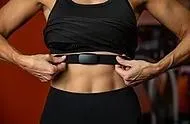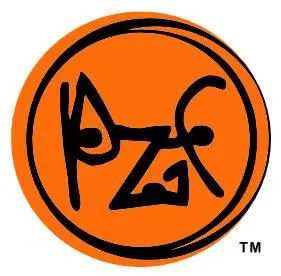BLOGS | PEAK ZONE FITNESS

The Heart-rate Monitor Effect
“Knowledge is power only when put to use - and then only when the use made of it is constructive. .” - David J. Schwartz
Knowledge is Power:
Your heart rate monitor is key to getting the most from your workout.
Ever forgotten to wear your heart rate monitor to the gym? You probably felt a little less motivated.
That’s because we humans are visually oriented, and watching our heart rate numbers on a watch or monitor gives us motivation to reach our target level and stay there.
The heart rate monitor that Peak Zone Fitness gifts you lets you know when you’re slacking off and when you’re pushing too hard, and it teaches you how to sense those levels yourself.
The heart rate monitor helps keep you focused on what you’re doing. If you notice the number is a bit low, you know you need to go faster or use a heavier weight to increase your effort.
And, seeing those “calories burned” is one of the best motivators for sticking to your exercise routine.
You can also use your heart rate monitor outside the gym to check how much energy you put into daily activities like walking in a park or mowing the lawn.
Curiously, research has shown that simply knowing how all of this works is good for your health.
Harvard psychologist Ellen Langer studied 84 hotel maids, who are exercising all day as they push and pull heavy equipment and clean.
Questionnaires revealed, however, that 67 percent of the maids felt they didn’t exercise.
Even stranger, their body measurements, weight and blood pressure levels indicated that they weren’t benefiting from performing physical activity that actually exceeds the surgeon general’s recommended amount.
So she did a test. Researchers taught half the maids exactly how many calories they were burning with each of their routine tasks.
A month later, the maids who understood that they were exercising had a 10 percent drop in blood pressure and decreases in their weight and waist-to-hip ratios. Meanwhile, the control group experienced no changes.
Langer thinks this is an example of the placebo effect — if you believe you are exercising, your body responds as if it is.
So, use that heart rate monitor to measure your progress. Your health may well depend on it.

With that said, here are 5 Benefits of Using a Heart Rate Monitor When You Exercise! 👊
1. A Heart Rate Monitor Helps Gauge Exercise Intensity
Are you exercising too hard or not hard enough? You might judge based on how much you’re sweating or how you feel, but that feedback isn’t as reliable as the information a heart rate monitor provides.
For example, if you’re doing high-intensity interval training, a heart rate monitor will tell you whether you’re exercising at a high enough intensity to meet your goals. You can also monitor your heart rate to ensure you’re not working too hard. Likewise, if you’re out for a jog, but wonder if you’re working hard enough to improve your cardiovascular fitness, a heart rate monitor can tell you whether you’re keeping your heart rate high enough to meet that goal.
So, a heart rate monitor can improve the quality of your workouts and ensure you’re meeting your fitness goals. It can tell you whether you’re above or below your target heart rate or whether you need to dial the intensity up or back. Plus, you can adjust on the spot due to the immediacy of the information you get from the tracker. You don’t have to stop and take your pulse rate to get feedback.
2. It Can Help You Stay Motivated
Wearing a heart rate monitor is like having an invisible personal trainer telling you how hard to work. This type of constant feedback can help you stay motivated. It’s gratifying to see you boosted your heart rate to a certain level, and that extra gratification can help you stay motivated to meet your fitness goals. Some studies show people who use fitness trackers that give feedback about their performance are more likely to be consistent with working out.
3. It Allows You to Check Your Recovery Heart Rate Too
A heart rate monitor is also useful for checking recovery heart rate, how quickly your heart rate comes down after an exercise session. When you exercise, your heart speeds up to deliver more oxygen to your muscles and slows down when you stop. Heart rate recovery is how fast your heart rate comes down in the first minute after you stop exercising.
To measure recovery heart, take your heart rate as soon as you stop exercising, and again 1 minute later, and compare the two values. At a minimum, the second value should be 12 beats per minute lower than the first. The faster your heart rate comes down, the more physically fit you are, and the more capable your heart is of handling stress. If you don’t have a heart rate monitor, you’ll have to check your pulse rate each time, while a heart rate monitor makes it a breeze.
4. Using a Heart Rate Monitor is Beneficial if You Have Medical Conditions
If you have cardiovascular disease, hypertension, or other health problems, your health care provider might tell you it’s okay to exercise but to keep your heart rate below a certain value. A heart rate monitor gives you the instant feedback you need to adjust exercise intensity for health reasons.
Diabetics can benefit from a heart rate monitor too. An unexpected rise in heart rate can also be a sign in diabetics of a drop in blood sugar and inadequate hydration in healthy people. If you have medical problems, a heart rate monitor helps you exercise more safely.
5. Monitor for Overtraining
One way to know whether you’re pushing yourself too hard is to check a first-morning heart rate. If you notice a sudden rise in your heart rate in the morning before getting out of bed, it may be a sign your body isn’t fully recovering after your training, and you need more rest and recovery time.
Likewise, you can wear a heart rate monitor at home after getting up in the morning to determine whether it’s higher than it usually is. A jump in your baseline heart rate could indicate overtraining or excessive stress on your body. It could also mean dehydration. These are all factors you should be aware of.
Peak Zone Fitness
10531 E. Northwest Hwy, Suite A, Dallas, Texas 75238
(469) 706-3548
support@peakzonefitness.com
Terms of Use | Privacy Policy
Copyright 2024 - - All Rights Reserved
NOT FACEBOOK™: This site is not a part of the Facebook™ website or Facebook Inc. Additionally, This site is NOT endorsed by Facebook™ in any way. FACEBOOK™ is a trademark of FACEBOOK™, Inc.
We use cookies, including third-party cookies, on this website to help operate our site and for analytics and advertising purposes. For more on how we use cookies and your cookie choices, go here for our cookie policy!
Legal and Regulatory Earnings and Results Disclaimer
“The financial information, strategies, and projections provided on our website, products, or services are intended for educational and informational purposes only. Past performance is not indicative of future results, and individual success may vary. We cannot guarantee that you will achieve similar outcomes or results by following the information, advice, or strategies shared on our platform. We are not responsible for any financial decisions or actions you take based on the information provided. It is your responsibility to conduct your own research and consult with a qualified financial professional before making any investment or financial decisions.
Our company disclaims any liability for losses or damages that may arise directly or indirectly from the use or reliance on the information provided. By using our website, products, or services, you agree to assume all risks associated with such use and to release our company, its affiliates, and partners from any claims, damages, or liabilities that may arise from your financial decisions.”
Testimonial Disclaimer
“The testimonials presented on our website, products, or services reflect the individual experiences of our customers and are provided for illustrative purposes only. They are not intended to guarantee, promise, or represent that all customers will achieve the same or similar results. Individual results and experiences may vary, and the outcomes mentioned in the testimonials should not be considered typical or standard. Our company does not verify the accuracy or authenticity of the testimonials, and they should be viewed as subjective opinions provided voluntarily by our customers. We cannot assure that every customer will have a similar experience or achieve the same level of satisfaction. By using our website, products, or services, you acknowledge and agree that our company is not responsible for any decisions or actions you take based on the testimonials provided.”

